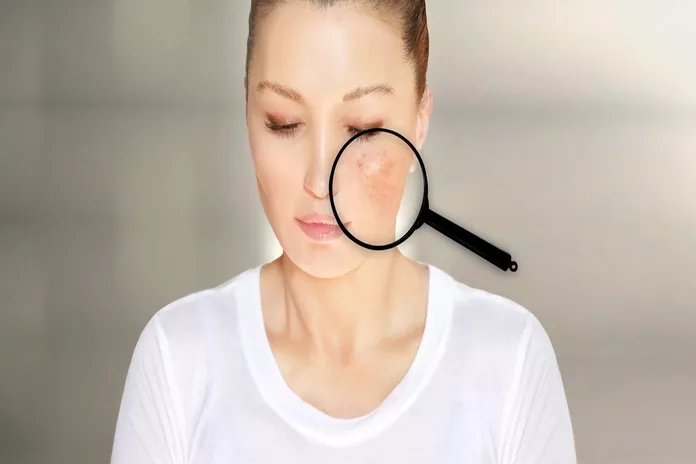Is Rosacea Contagious?

No, rosacea is not contagious. It is believed to be related to genetic, environmental, and lifestyle factors. It is not caused by bacteria or viruses or any microbial infection and thus cannot be transmitted from person to person.
Diagnosis
Diagnosis of rosacea is primarily based on the clinical presentation of symptoms and examination of the affected skin. However, diagnostic tests may be recommended to rule out other underlying medical conditions that can mimic the symptoms of rosacea. Some diagnostic tests that can aid in the diagnosis of rosacea include:
- Skin biopsy: A sample of the facial skin is taken and examined to rule out other skin conditions that may mimic rosacea, such as lupus, psoriasis, or seborrheic dermatitis.
- Blood tests: These are used to rule out thyroid disease or lupus, or other underlying medical conditions that can cause skin flushing.
- Skin allergy tests: Skin allergy tests can be performed to identify any triggers that may exacerbate rosacea symptoms, such as certain foods or topical skincare products.
- Demodex mite testing: Demodex mites are microscopic organisms that live on the skin and can exacerbate rosacea symptoms. A skin scraping can be performed to identify the presence of these mites.
- Skin culture: A skin culture can be performed to identify any bacterial infections that may contribute to the development of rosacea.
In conclusion, while the diagnosis of rosacea is mainly based on clinical presentation, the above diagnostic tests can help confirm the diagnosis, rule out other medical conditions, and identify any triggers or contributing factors that can help guide treatment decisions.

